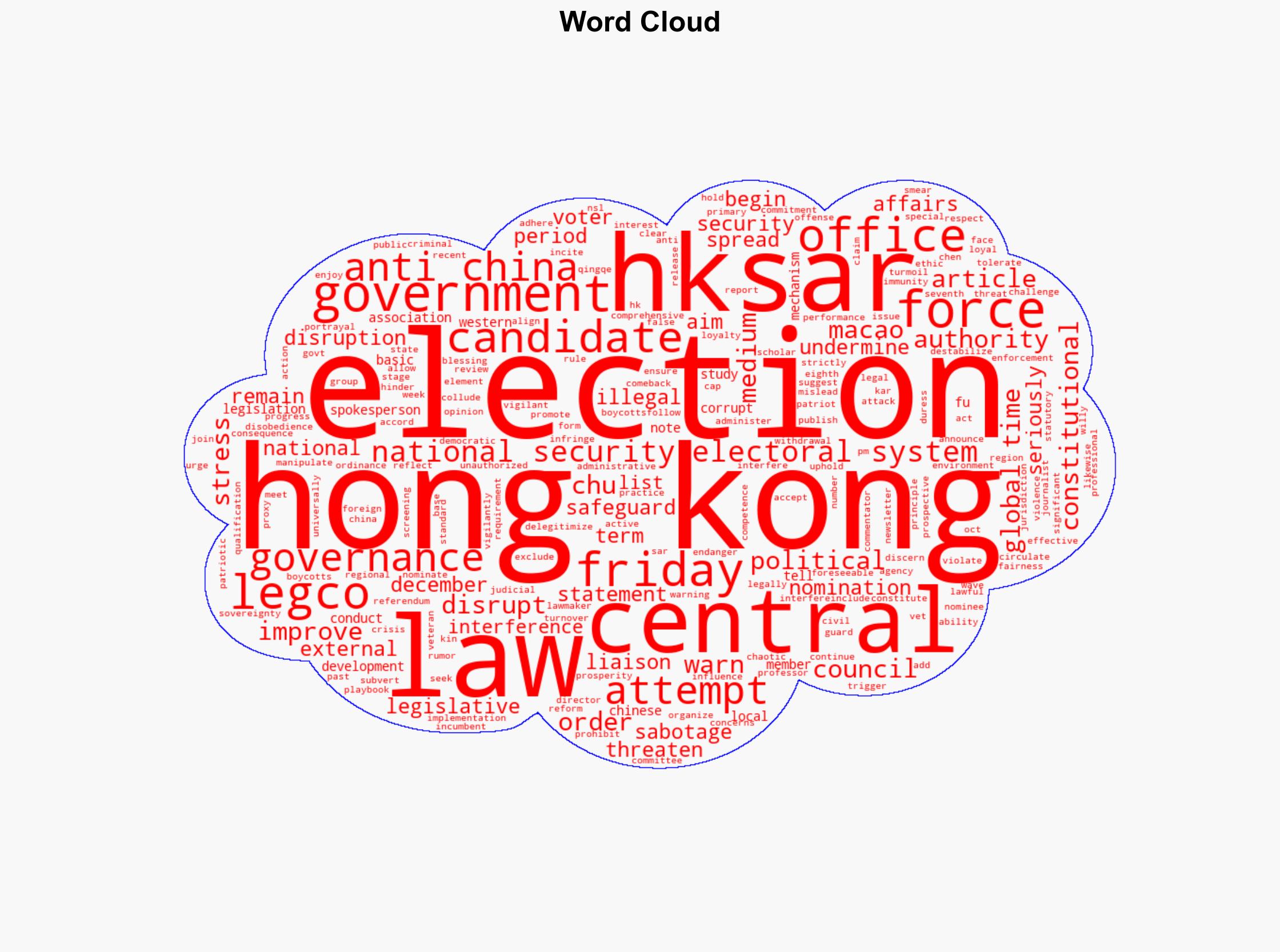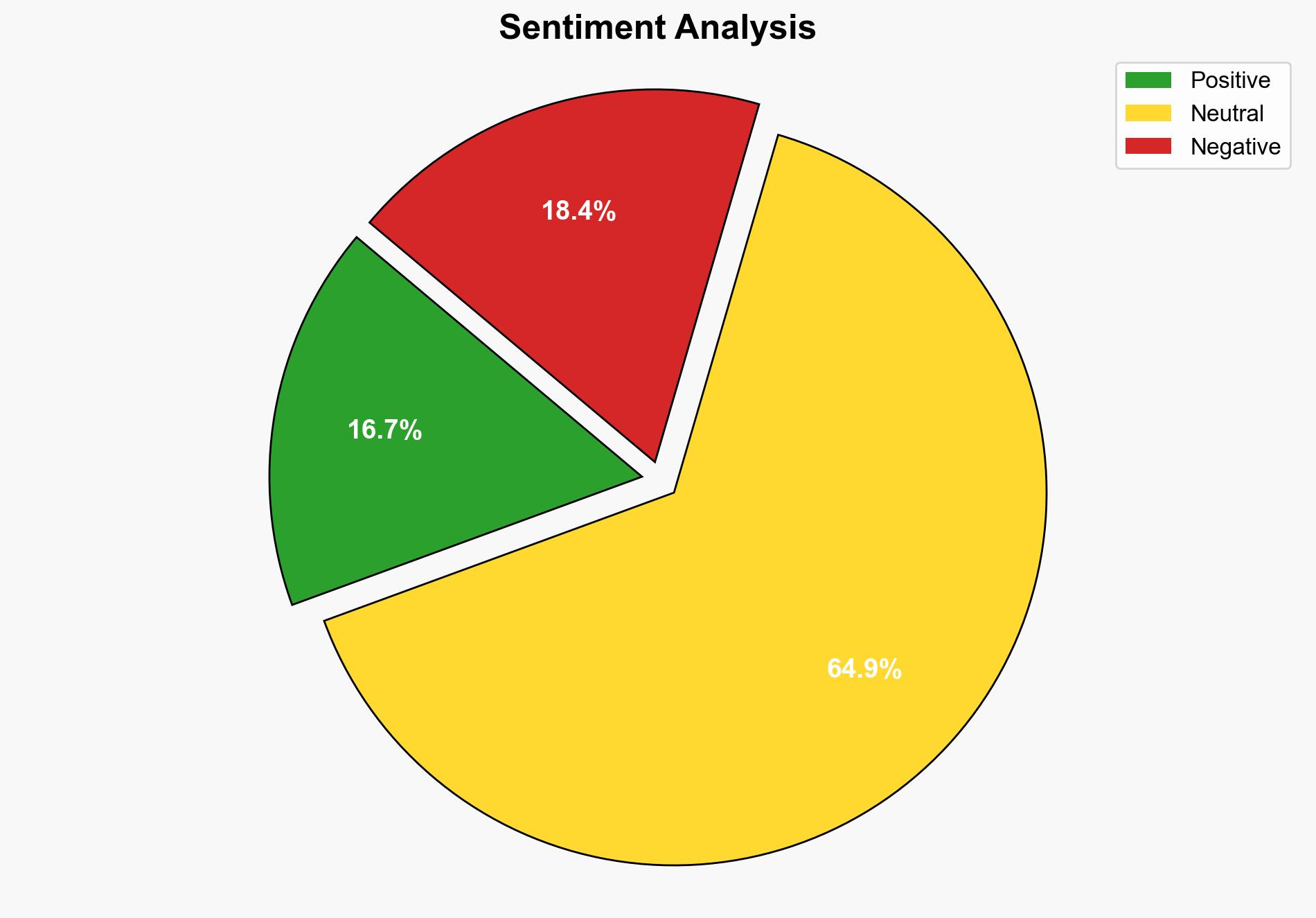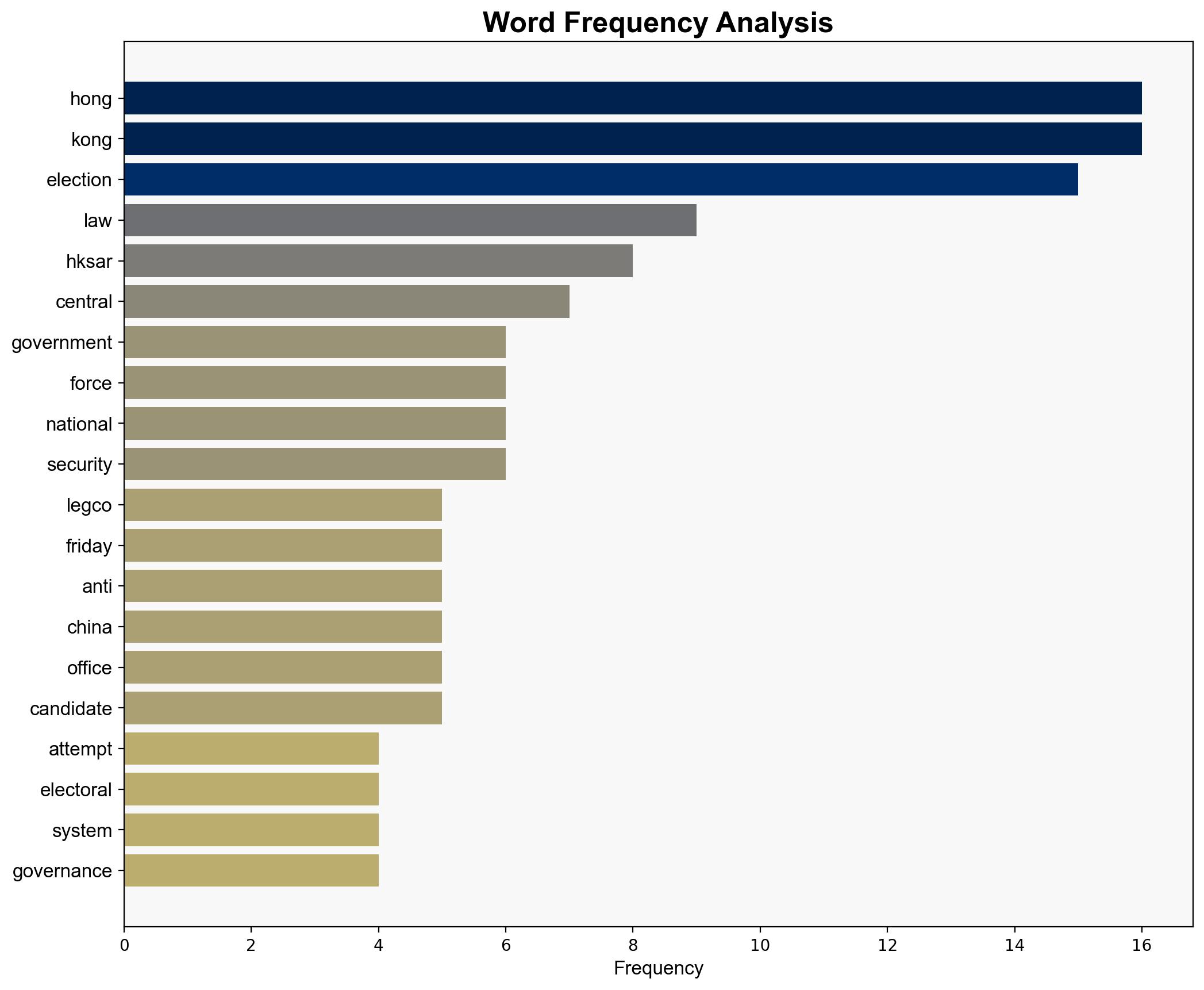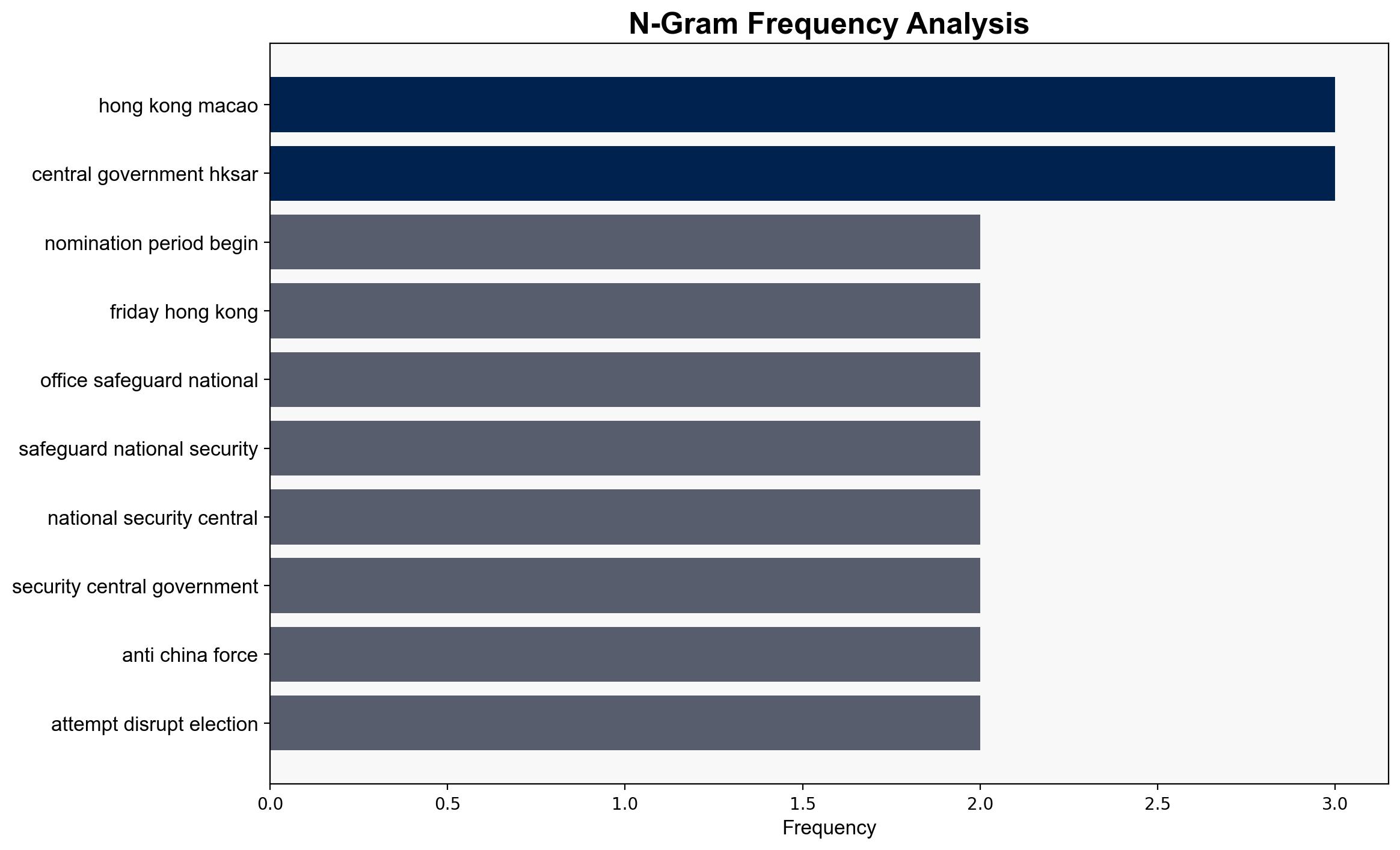Central govt authorities warn against disruption sabotage as HK LegCo elections nomination period begins – Globalsecurity.org
Published on: 2025-10-25
Intelligence Report: Central govt authorities warn against disruption sabotage as HK LegCo elections nomination period begins – Globalsecurity.org
1. BLUF (Bottom Line Up Front)
The most supported hypothesis is that the central government is preemptively addressing potential disruptions to the Hong Kong Legislative Council elections to maintain control and stability. This hypothesis is supported by the issuance of warnings and the emphasis on national security. Confidence level: Moderate. Recommended action: Monitor the situation closely for signs of external influence or internal dissent that could escalate tensions.
2. Competing Hypotheses
1. **Hypothesis A**: The central government is genuinely concerned about potential disruptions from anti-China forces and is taking preventive measures to ensure a smooth electoral process.
2. **Hypothesis B**: The central government is using the narrative of potential disruptions as a pretext to tighten control over the electoral process and suppress dissenting voices.
Using Analysis of Competing Hypotheses (ACH), Hypothesis A is more supported due to the consistent emphasis on national security and the historical context of similar actions. However, Hypothesis B cannot be entirely dismissed, as it aligns with past instances where security concerns were used to justify increased control.
3. Key Assumptions and Red Flags
– **Assumptions**: The central government has credible intelligence on potential disruptions. The electoral reforms are primarily motivated by security concerns.
– **Red Flags**: Lack of specific evidence provided for the alleged threats. Potential bias in portraying dissent as foreign-influenced.
– **Blind Spots**: Limited visibility into the actual level of threat posed by anti-China forces and the internal political dynamics within Hong Kong.
4. Implications and Strategic Risks
– **Political**: Increased tensions between pro-democracy groups and the central government could lead to civil unrest.
– **Economic**: Perceived instability may deter foreign investment and impact Hong Kong’s economic standing.
– **Geopolitical**: Heightened scrutiny from international actors could lead to diplomatic tensions.
– **Psychological**: Public perception of the electoral process may be undermined, affecting voter turnout and trust in governance.
5. Recommendations and Outlook
- Enhance intelligence gathering on both internal and external actors potentially influencing the elections.
- Engage in diplomatic dialogue with international stakeholders to mitigate geopolitical tensions.
- Scenario Projections:
- Best Case: Elections proceed smoothly with minimal disruptions, enhancing stability.
- Worst Case: Significant unrest and international condemnation lead to prolonged instability.
- Most Likely: Minor disruptions occur, but the central government maintains control, with moderate international criticism.
6. Key Individuals and Entities
– Chen Qingqe, mentioned in the source text, likely involved in disseminating the central government’s narrative.
– Willy Fu, a law professor, providing legal justification for the electoral reforms.
7. Thematic Tags
national security threats, electoral integrity, geopolitical tensions, regional stability





